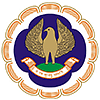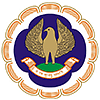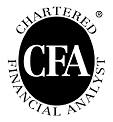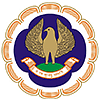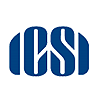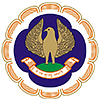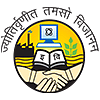B.Com Banking Management Syllabus and Subjects

B.Com Bank Management Syllabus imparts theoretical and practical insight into banking, finance, accounting economics, and investment concepts along with the study of commerce and business. The B.Com Banking subjects include Management, Accounting, Economic Theory, Money, banking system, and more.
BCom Bank Management syllabus equips students with industry-relevant skills and knowledge to acquire potential employment opportunities, resulting in the job scope of B.Com Banking Management being substantially extensive in the several sectors dealing with financial & banking products.
Table of Contents
Semester Wise B.Com Bank Management Syllabus
Each semester under the B.Com Bank Management syllabus introduces students to the important and essential concepts relating to banking, trade, and financial management. Below the B.Com Bank Management subjects list is given according to the semesters:
First Year B.Com Bank Management Syllabus
Some of the B.Com Banking subjects in the first year are given below:
|
Semester I |
Semester II |
|
Language (Regional) I |
Language (Regional) II |
|
English Language I |
English Language II |
|
Financial Accounting |
Principles of Management |
|
Business Communication |
Theory of Money and Banking |
|
Micro Economics |
Macro Economics |
Second Year B.Com Banking Management Syllabus
The subjects in the second year B.Com Bank Management syllabus are given below:
|
Semester III |
Semester IV |
|
Language (Regional) III |
Language (Regional) IV |
|
English Language III |
English Language IV |
|
Corporate Accounting |
Financial Markets & Services |
|
Banking Theory Law and Practice |
Company Laws |
|
Business Law |
Business Taxation |
|
Electives |
Electives |
Third Year B.Com Bank Management Syllabus
Some of the B.Com in Bank Management subjects in the third-year syllabus are given below:
|
Semester V |
Semester VI |
|
Language (Regional) V |
Language (Regional) V |
|
English Language V |
English Language V |
|
Banking Theory Regulatory Mechanism |
Technology in Banking |
|
Financial Management |
International Banking |
|
Management Accounting |
Treasury Management |
| Research Methods | Retail & Cooperative Banking |
|
Electives |
Electives |
B.Com Banking Subjects
B.Com Bank Management subjects comprise studies based on the core functionalities of banking systems & management and include various concepts based on liquidity management, asset management, liability management, and capital management, capital liquidity, and capital profitability trade-offs. Some of the core & elective BCom Bank Management subjects are given below:
Core B.Com Bank Management Subjects
The course has a mix of both core and elective subjects as part of the syllabus. Below is a list of some core BCom Banking subjects:
- Fundamentals of Management
- Financial Accounting
- Banking Theory and Practice
- Financial Markets and Services
- Management Accounting
- Banking Management
- Financial Management
Elective BCom Bank Management Subjects
Elective subjects are optional subjects that help the students choose a specialization and make the course more diverse and flexible. Following is the B.Com Bank Management subjects list of elective topics:
- Indian Economy
- Business Mathematics
- Credit Risk and Management Banking
- Customer Relationship Management
- Practical Auditing
- Rural Banking
- Inventory Management
BCom Banking subjects in Detail
BCom Bank Management subjects cover all the essential insights into the several fundamentals of banking mechanisms. A detailed view of some of B.Com Bank Management subjects is given below:
| BCom Banking subjects | Topics Covered |
| Fundamentals Of Management | Introduction To Management, Planning & Types Of Business Organisation, Directing & Motivating, Co-ordination & Control, Leadership & Motivation |
| Financial Accounting | Final Accounts & Accounts Of Non-Trading Concerns, Single Entry System, Bank Reconciliation Statement, Branch Accounts, Departmental Accounts |
| Corporate Accounting | Issue & Redemption Of Shares & Debentures, Goodwill, Computation of Managerial Remuneration, Share Capital Changes |
| Banking Theory Law & Practice | Commercial Banks, Functions, Accepting Deposits, Lending of Funds, Customers & Accounts, Lending, Negotiable Instruments |
| Banking Theory Regulatory Mechanism | Regulatory Framework, Monetary Policy, Committees, Rationalization of Interest Rates, Structures of Interest Rates, NBFC |
| Financialmarkets & Services | Introduction To Financial Services, Merchant Banking, Lending Modes, Consumer Finance, Mutual Funds |
B.Com Banking Management Course Structure
B.Com in Banking Management course structure is very diverse and flexible. Students are required to participate in seminars, and guest lectures along with submitting assignments and presenting case studies. Additionally, The skill development subjects will help students to acquire industry-oriented knowledge. The course structure is as follows:
- VI Semesters
- Core Subjects
- Elective Subjects
- Research Project
B.Com Banking Management Teaching Methodology and Techniques
The teaching methodology and techniques under the B.Com Bank Management course consist of traditional classroom-based teaching. Additionally, aspirants are expected to work on a research project. Listed below are some of the teaching methodology and techniques of the BCom Bank Management course:
- Traditional Classroom-Based Teaching
- Seminar
- Case Studies
- Guest Lecture
B.Com Banking Management Projects
B.Com Banking Management course has many opportunities for students to conduct research projects on a topic of their choice or related to their electives. Some top Projects under the B.Com Bank Management syllabus are given below:
- Mobile Banking System
- Consumer Credit Collection Approaches
- Forex Management System
- ATM Banking System
- Asset Liability Management System
- Corporate E-banking
B.Com Banking Management Reference Books
There are many B.Com Bank Management books that are available in the market for students to go through. Some of the books under the BCom Bank Management syllabus are mentioned below:
|
Book |
Author Name |
|
Banking Theory and Practice |
K C Shekhar and Lekshmy Shekhar |
|
Accounting on 3rd. Revised Ed. Effective Techniques for Decision Making |
S. Jayapandian |
|
Banking: Theory, Law, And Practice |
Gordon & Tarajan |
Top Commerce Entrance Exams
FAQs on B.Com Banking Management Syllabus and Subjects
Q: What is the 1st year syllabus of BCom Banking Management?
Q: What are the core subjects of BCom Banking Management?
Q: What are the elective subjects in BCom Banking Management?
Q: What are the BCom Banking Management projects?
Q: What are the important books for BCom Banking Management?
